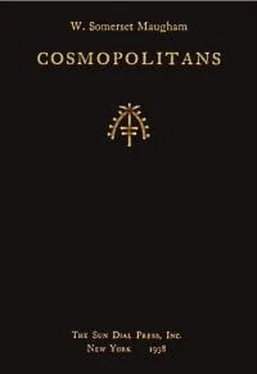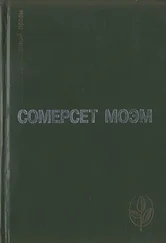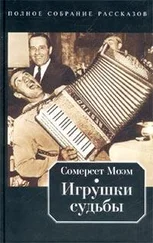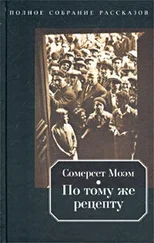Уильям Моэм - Cosmopolitans
Здесь есть возможность читать онлайн «Уильям Моэм - Cosmopolitans» весь текст электронной книги совершенно бесплатно (целиком полную версию без сокращений). В некоторых случаях можно слушать аудио, скачать через торрент в формате fb2 и присутствует краткое содержание. Город: New York, Год выпуска: 1938, Издательство: The Sun Dial Press, INC., Жанр: Классическая проза, short_story, на английском языке. Описание произведения, (предисловие) а так же отзывы посетителей доступны на портале библиотеки ЛибКат.
- Название:Cosmopolitans
- Автор:
- Издательство:The Sun Dial Press, INC.
- Жанр:
- Год:1938
- Город:New York
- ISBN:нет данных
- Рейтинг книги:5 / 5. Голосов: 1
-
Избранное:Добавить в избранное
- Отзывы:
-
Ваша оценка:
- 100
- 1
- 2
- 3
- 4
- 5
Cosmopolitans: краткое содержание, описание и аннотация
Предлагаем к чтению аннотацию, описание, краткое содержание или предисловие (зависит от того, что написал сам автор книги «Cosmopolitans»). Если вы не нашли необходимую информацию о книге — напишите в комментариях, мы постараемся отыскать её.
Cosmopolitans — читать онлайн бесплатно полную книгу (весь текст) целиком
Ниже представлен текст книги, разбитый по страницам. Система сохранения места последней прочитанной страницы, позволяет с удобством читать онлайн бесплатно книгу «Cosmopolitans», без необходимости каждый раз заново искать на чём Вы остановились. Поставьте закладку, и сможете в любой момент перейти на страницу, на которой закончили чтение.
Интервал:
Закладка:
IT WAS ON ACCOUNT of the scar that I first noticed him, for it ran, broad and red, in a great crescent from his temple to his chin. It must have been due to a formidable wound and I wondered whether this had been caused by a sabre or by a fragment of shell. It was unexpected on that round, fat and good-humoured face. He had small and undistinguished features, and his expression was artless. His face went oddly with his corpulent body. He was a powerful man of more than common height. I never saw him in anything but a very shabby grey suit, a khaki shirt and a battered sombrero. He was far from clean. He used to come into the Palace Hotel at Guatemala City every day at cocktail time and strolling leisurely round the bar offer lottery tickets for sale. If this was the way he made his living it must have been a poor one, for I never saw anyone buy, but now and then I saw him offered a drink. He never refused it. He threaded his way among the tables with a sort of rolling walk as though he were accustomed to traverse long distances on foot, paused at each table, with a little smile mentioned the numbers he had for sale and then, when no notice was taken of him, with the same smile passed on. I think he was for the most part a trifle the worse for liquor.
I was standing at the bar one evening, my foot on the rail, with an acquaintance—they make a very good dry martini at the Palace Hotel in Guatemala City—when the man with the scar came up. I shook my head as for the twentieth time since my arrival he held out for my inspection his lottery tickets. But my companion nodded affably.
“Que tal, general? How is life?”
“Not so bad. Business is none too good, but it might be worse.”
“What will you have, general?"
“A brandy.”
He tossed it down and put the glass back on the bar. He nodded to my acquaintance.
“Gracias. Hasta luego.”
Then he turned away and offered his tickets to the men who were standing next to us.
“Who is your friend?” I asked. “That’s a terrific scar on his face."
“It doesn’t add to his beauty, does it? He’s an exile from Nicaragua. He’s a ruffian of course and a bandit, but not a bad fellow. I give him a few pesos now and then. He was a revolutionary general and if his ammunition hadn’t given out he’d have upset the government and be minister of war now instead of selling lottery tickets in Guatemala. They captured him, along with his staff, such as it was, and tried him by court-martial. Such things are rather summary in these countries, you know, and he was sentenced to be shot at dawn. I guess he knew what was coming to him when he was caught. He spent the night in gaol and he and the others, there were five of them altogether, passed the time playing poker. They used matches for chips. He told me he’d never had such a run of bad luck in his life; they were playing with a short pack, Jacks to open, but he never held a card; he never improved more than half a dozen times in the whole sitting and no sooner did he buy a new stack than he lost it. When day broke and the soldiers came into the cell to fetch them for execution he had lost more matches than a reasonable man could use in a lifetime.
“They were led into the patio of the gaol and placed against a wall, the five of them side by side, with the firing party facing them. There was a pause and our friend asked the officer in charge of them what the devil they were keeping him waiting for. The officer said that the general commanding the government troops wished to attend the execution and they awaited his arrival.
“ ‘Then I have time to smoke another cigarette,’ said our friend. ‘He was always unpunctual.’
“But he had barely lit it when the general—it was San Ignacio, by the way: I don’t know whether you ever met him—followed by his A.D.C. came into the patio. The usual formalities were performed and San Ignacio asked the condemned men whether there was anything they wished before the execution took place. Four of the five shook their heads, but our friend spoke.
“ ‘Yes, I should like to say good-bye to my wife.’
“ ‘Bueno,’ said the general, ‘I have no objection to that. Where is she?’
“ ‘She is waiting at the prison door.’
“ ‘Then it will not cause a delay of more than five minutes.’
“ ‘Hardly that, Señor General.’
“ ‘Have him placed on one side.’
“Two soldiers advanced and between them the condemned rebel walked to the spot indicated. The officer in command of the firing squad on a nod from the general gave an order, there was a ragged report, and the four men fell. They fell strangely, not together, but one after the other, with movements that were almost grotesque, as though they were puppets in a toy theatre. The officer went up to them and into one who was still alive emptied two chambers of his revolver. Our friend finished his cigarette and threw away the stub.
“There was a little stir at the gateway. A woman came into the patio, with quick steps, and then, her hand on her heart, stopped suddenly. She gave a cry and with outstretched arms ran forward.
“ ‘Caramba,’ said the general.
“She was in black, with a veil over her hair, and her face was dead white. She was hardly more than a girl, a slim creature, with little regular features and enormous eyes. But they were distraught with anguish. Her loveliness was such that as she ran, her mouth slightly open and the agony of her face beautiful, a gasp of surprise was wrung from those indifferent soldiers who looked at her.
“The rebel advanced a step or two to meet her. She flung herself into his arms and with a hoarse cry of passion: alma de mi corazón, soul of my heart, he pressed his lips to hers. And at the same moment he drew a knife from his ragged shirt—I haven’t a notion how he had managed to retain possession of it—and stabbed her in the neck. The blood spurted from the cut vein and dyed his shirt. Then he flung his arms round her and once more pressed his lips to hers.
“It happened so quickly that many didn’t know what had occurred, but from the others burst a cry of horror; they sprang forward and seized him. They loosened his grasp and the girl would have fallen if the A.D.C. hadn’t caught her. She was unconscious. They laid her on the ground and with dismay on their faces stood round watching her. The rebel knew where he was striking and it was impossible to staunch the blood. In a moment the A.D.C. who had been kneeling by her side rose.
“ ‘She’s dead,’ he whispered.
“The rebel crossed himself.
“ ‘Why did you do it?’ asked the general.
“ ‘I loved her.’
“A sort of sigh passed through those men crowded together and they looked with strange faces at the murderer. The general stared at him for a while in silence.
“ ‘It was a noble gesture,’ he said at last. ‘I cannot execute this man. Take my car and have him led to the frontier. Señor, I offer you the homage which is due from one brave man to another.’
“A murmur of approbation broke from those who listened. The A.D.C. tapped the rebel on the shoulder, and between the two soldiers without a word he marched to the waiting car."
My friend stopped and for a little I was silent. I must explain that he was a Guatemaltecan and spoke to me in Spanish. I have translated what he told me as well as I could, but I have made no attempt to tone down his rather high-flown language. To tell the truth I think it suits the story.
“But how then did he get the scar?” I asked at length.
“Oh, that was due to a bottle that burst when he was opening it. A bottle of ginger ale."
“I never liked it,” said I.
The Poet
I AM NOT MUCH INTERESTED in the celebrated and I have never had patience with the passion that afflicts so many to shake hands with the great ones of the earth. When it is proposed to me to meet some person distinguished above his fellows by his rank or his attainments, I seek for a civil excuse that may enable me to avoid the honour; and when my friend Diego Torre suggested giving me an introduction to Santa Ana I declined. But for once the excuse I made was sincere; Santa Ana was not only a great poet but also a romantic figure and it would have amused me to see in his decrepitude a man whose adventures (in Spain at least) were legendary; but I knew that he was old and ill and I could not believe that it would be anything but a nuisance to him to meet a stranger and a foreigner. Calisto de Santa Ana was the last descendant of the Grand School; in a world unsympathetic to Byron-ism he had led a Byronic existence and he had narrated his hazardous life in a series of poems that had brought him a fame unknown to his contemporaries. I am no judge of their value, for I read them first when I was three and twenty and then was enraptured by them; they had a passion, a heroic arrogance and a multi-coloured vitality that swept me off my feet, and to this day, so intermingled are those ringing lines and haunting cadences with the charming memories of my youth, I cannot read them without a beating heart. I am inclined to think that Calisto de Santa Ana deserves the reputation he enjoys among the Spanish-speaking peoples. In those days his verses were on the lips of all young men and my friends would talk to me endlessly of his wild ways, his vehement speeches (for he was a politician as well as a poet), his incisive wit and his amours. He was a rebel and sometimes an outlaw, daring and adventurous; but above all he was a lover. We knew all about his passion for this great actress or that divine singer—had we not read till we knew them by heart the burning sonnets in which he described his love, his anguish and his wrath?—and we were aware that an infanta of Spain, the proudest descendant of the Bourbons, having yielded to his entreaties, had taken the veil when he ceased to love her. When the Philips, her royal ancestors, tired of a mistress she entered a convent, for it was unfitting that one whom the King had loved should be loved by another, and was not Calisto de Santa Ana greater than any earthly king? We applauded the lady’s romantic gesture; it was creditable to her and flattering to our poet.
Читать дальшеИнтервал:
Закладка:
Похожие книги на «Cosmopolitans»
Представляем Вашему вниманию похожие книги на «Cosmopolitans» списком для выбора. Мы отобрали схожую по названию и смыслу литературу в надежде предоставить читателям больше вариантов отыскать новые, интересные, ещё непрочитанные произведения.
Обсуждение, отзывы о книге «Cosmopolitans» и просто собственные мнения читателей. Оставьте ваши комментарии, напишите, что Вы думаете о произведении, его смысле или главных героях. Укажите что конкретно понравилось, а что нет, и почему Вы так считаете.










